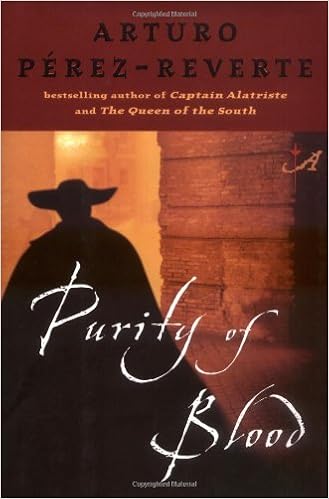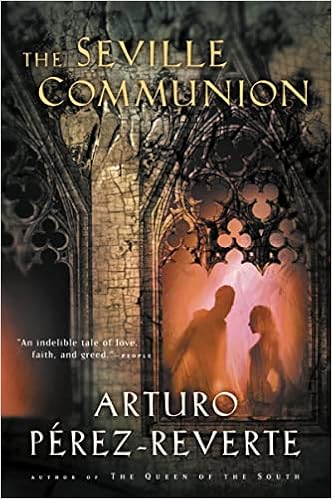
Description
From Publishers Weekly Those looking for seriously entertaining thrills will welcome Pérez-Reverte's second 17th-century Spanish swashbuckler featuring the exploits of stoic, honorable Capt. Diego Alatriste (after 2005's Captain Alatriste ). A father and two brothers accompany Alatriste on a mission to rescue their sister from the convent in which she has been imprisoned. Things go wrong when an old enemy of the captain ensures that Alatriste's ward, 13-year-old Inigo Balboa, falls into the hands of the Inquisition. With the aid of the great Spanish poet Francisco de Quevedo, all is made right. Rich in historical detail and sardonic observations, the narrative begins leisurely. The pace picks up, but the action is never so breathless as to sweep the reader along, as with Captain Alatriste . Still, this will matter little to fans, who are sure to look forward to further installments in the series. (Jan.) Copyright © Reed Business Information, a division of Reed Elsevier Inc. All rights reserved. From Bookmarks Magazine In yet another example of our trade deficit, the United States continues to do well by Arturo Pérez-Reverte. His books, The Club Dumas , The Seville Communion , and The Fencing Master , all translated from the Spanish, have gotten quite cozy with our domestic best-seller lists. So last year Putnam launched the Captain Alatriste series, previously published in Pérez-Revertex92s native Spain, with the first volume, Captain Alatriste (**** Selection Sept/Oct 2005). Critics praised this second installment for its taut plotting, sense of place, and old-fashioned derring-do. Good news for fans of the series: three more installments await translation, and the author has committed to rounding it out to a lucky seven titles. Copyright © 2004 Phillips & Nelson Media, Inc. From Booklist Spanish novelist Perez-Reverte is known the world over for his historical thrillers, and now his earlier five-novel historical-fiction series, the Adventures of Captain Alatriste, all of which were huge best sellers in his native Spain, is being published in the U.S. for the first time, one volume at a time. Captain Alatriste (2005) was the first to appear, and now the second installment makes its American debut. The novels are set in seventeenth-century Spain, centered in the Spanish capital--during the time when the glitter of the Spanish empire was already showing itself to be thin and worn ("the dark, violent, and contradictory Spain of our Catholic king Philip IV"). Captain Diego Alatriste, a veteran of Spain's foreign wars, is currently a sword for hire. On this occasion, in this completely absorbing novel that, like the first one in the series, absolutely defines swashbuckling , he is contracted to help a man from a Jewish-turned-Catholic family rescue his daughter from behind the thick walls of a Madrid convent, which the chaplain "has turned . . . into his private seraglio." This novel is written in the mold of Dumas' musketeer novels and excitingly upholds the tradition. Brad Hooper Copyright © American Library Association. All rights reserved ...hard-boiled, mordantly funny, [and] unapologetically entertaining... -- Time , January 16, 2006 On the whole... Purity of Blood hits the high note of Captain Alatriste and sustains the series' uncommon verve. -- New York Times , January 26, 2006 Perez-Reverte...offers a flamboyant doff of a frowzily plumed hat here to the clanking adventure tales of his youth. -- Washington Post , March 1, 2006 Arturo Pérez-Reverte lives near Madrid. Originally a war journalist, he now writes fiction full-time. His novels have been published in fifty countries. In 2002, he was elected to the Spanish Royal Academy. Read more
Features & Highlights
- Hired to rescue a man's daughter from a convent where a powerful corrupt priest is forcing her to be his personal concubine, Alatriste finds himself thrust into a religious and political conspiracy with ties to the highest levels of the Inquisition. 80,000 first printing.





